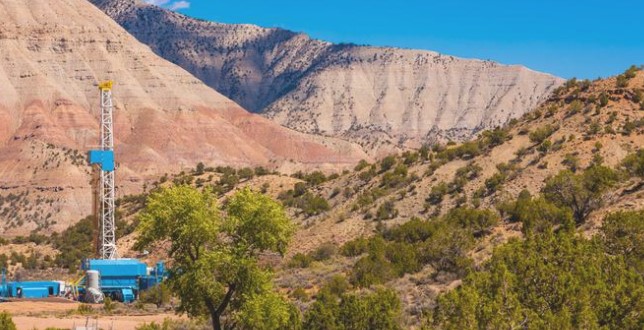
Energy News Beat Publishers Note: The Colorado regulatory agencies have implemented some of the toughest regulations in the country regarding oil & gas operations. There have been papers written from large universities explaining why these regulations need to be implemented nationally. Like many things that regulators look to impose on the energy markets, they do not look at how the regulations actually impact the disproportionately impacted communities both financially and through lost social services. One of the key issues surrounding the new regulations is compliance with outreach programs and the burden of proof. Even the lawmakers don’t understand where the data is pulled, and the impact of overlapping requirements. The disproportionately impacted communities always pay the price.
Sign up for a case study overviewing how data can help streamline navigating these rules
DBJ – The U.S. government plans to overhaul rules for oil and natural gas development on federal lands, and Colorado could once again serve as a template for the reforms.
The state has rewritten its extensive oil and gas regulations after the passage of Senate Bill 181 in 2019, and experts see some of the new rules being examples the federal government could copy or expand upon.
State regulators in 2020 adopted tougher standards for ground water protection and wellbore integrity — rules passed with broad support from both environmental groups and the oil and gas industry — and adopted sweeping new wildlife habitat protection requirements for new oil and gas projects.
Both of those could serve as a model again for federal regulators, legal experts say.
“Certainly, if the administration ends up looking at wellbore integrity and ground water protections, they may well start with what Colorado just did,” said David Neslin, an oil and gas attorney with Davis Graham & Stubbs who ran the Colorado Oil and Gas Conservation Commission for four years ending in 2012.
Federal rules passed during the Obama administration requiring disclosure of hydraulic fracturing chemicals and protecting groundwater, and rules limiting well methane emissions were patterned after similar rules Colorado had adopted.
The White House on Jan. 26 issued executive orders requiring sweeping looks at policies about energy development on federal land with an eye toward slashing greenhouse gas emissions.
First, the federal government ordered the Department of Interior to stop new oil and gas leasing on public land and offshore “to the extent possible,” and launch a rigorous review of practices related to fossil fuel development on federal land.
The move halted new leases on 24 million acres of federal property, which makes up 36% of the land in Colorado. About 35% of natural gas production in the state occurs on federal land, most of that west of Continental Divide.
The promised look at permitting for oil and gas projects is connected to a broader attempt cut greenhouse gas emissions.
The Biden administration is expected to reverse the Trump administration’s decision to strike limits on oil and gas site methane emissions on federal land and the Bureau of Land Management’s fracking chemical disclosure rule, both from 2015 and both of which resembled rules pioneered in Colorado.
“Reinstating those would be the first thing to do,” said Joro Walker, general counsel for Western Resource Advocates, and energy and environment policy group based in Boulder.
Other COGCC reforms likely to be of interest to the BLM and the U.S. Forest Service are new wildlife protections, also passed last fall, particularly those keeping well sites away from animal migration corridors, buffering water ways from oil and gas development, and requirements for keeping habitat maps up-to-date, Walker said.
Colorado’s new rules eliminating routine natural gas flaring from wells, which took effect Jan. 15, and policies further tightening methane emissions could serve as models for Biden administration federal reform, she said.
The Biden administration’s push to limit greenhouse gas emissions could have broad implications across the West, especially in states like New Mexico and Wyoming where energy production from federal land is the biggest driver of those states’ economies.
Denver-based Western Energy Alliance, which advocates for natural resource extraction on public lands in the West, immediately filed a lawsuit in federal district court in Wyoming asserting the White House overstepped its legal authority and seeking to reverse the leasing freeze.




1 Trackback / Pingback
Comments are closed.